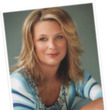Sing you home: a novel
Description
More Details
Hutchison, Brian Narrator
O'Medlin, Michele Narrator
Picoult, Jodi Author
Plummer, Thérèse Narrator
9781508297505
Table of Contents
From the Book - First Atria Books hardcover edition.
Excerpt
Similar Titles From NoveList
Similar Authors From NoveList
Published Reviews
Booklist Review
Popular author Picoult tackles the controversial topic of gay rights in her latest powerful tale. When music therapist Zoe Baxter's latest pregnancy ends in a stillbirth, her husband Max decides he can't handle any more heartbreak and leaves her. As she picks up the pieces of her life, Zoe is surprised to find herself falling for a school counselor who happens to be a woman. While Zoe is finding happiness with Vanessa, Max falls off the wagon and is helped by a pastor from his brother's evangelical church. Vanessa and Zoe wed in Massachusetts, and Vanessa offers to carry one of the fertilized embryos Zoe and Max stored. Excited by the prospect of being a mother, Zoe goes to Max to get him to release the embryos to her and is shocked when he instead sues her for custody of them, backed by his church. Told from the perspectives of all three major characters, Picoult's gripping novel explores all sides of the hot-button issue and offers a CD of folk songs that reflect Zoe's feelings throughout the novel. HIGH-DEMAND BACKSTORY: The always topical Picoult plans a multimedia tour to more than two dozen cities with Ellen Wilber, who will perform the songs she and Picoult wrote together.--Huntley, Kristine Copyright 2010 Booklist
Publisher's Weekly Review
Picoult's overstuffed latest (after House Rules) is stretched just to the breaking point. Max and Zoe's marriage, stressed by infertility problems and miscarriages, is finally destroyed by a stillborn baby. After their divorce, Max moves in with his brother and sister-in-law, Reid and Liddy, and backslides into self-destructive drinking, while Zoe devotes herself to music therapy (the book is accompanied by a CD in Zoe's voice, with awkward lyrics by Picoult) and develops a friendship with guidance counselor Vanessa that eventually turns into love and marriage. Max, meanwhile, converts to an evangelical brand of Christianity that pits him against Zoe when she asks Max for permission to use their frozen embryos. Max's discomfort with Zoe's same-sex relationship and his desire to repay Reid and Liddy, who have their own fertility problems, mean a legal battle looms. Picoult abandons her usual efforts to present an equal view of both sides of an issue-Max is a pitiful right-wing puppet; Zoe, Vanessa, and their attorney are saintly-but her devoted fans will nevertheless find everything they expect: big emotion, diligent research, legal conflict, and a few twists at the end. (Mar.) (c) Copyright PWxyz, LLC. All rights reserved.
Library Journal Review
For several years, Zoe Baxter and husband Max have been trying to conceive a child through IVF (in-vitro fertilization). When finally it looks like their dream is about to come true, tragedy strikes again, and Zoe loses the baby. Zoe, devastated but undaunted, wants to try again. Max can't handle it and files for divorce. Zoe's friendship with colleague Vanessa grows into a loving relationship, which leads to their same-sex marriage. Zoe yet longs for a child and realizes that she and Max still have frozen embryos at the fertility clinic. Perhaps she and Vanessa can have her biological child. What ensues is a roller-coaster ride among the religious right, the GLBT contingent, and the hearts and minds of the families involved. The narration by Therese Plummer, Brian Hutchison, Michele O. Medlin, and Mia Barron makes this a captivating story. Recommended for all public libraries. ["Sure to be a hit with (Picoult's) myriad fans and keep the book clubs buzzing," read the review of the New York Times and LJ best-selling Atria: S. & S. hc, LJ 1/11; the Washington Square pb will publish in November.-Ed.]-Valerie Piechocki, Prince George's Cty. Memorial Lib., Largo, MD (c) Copyright 2011. Library Journals LLC, a wholly owned subsidiary of Media Source, Inc. No redistribution permitted.
Booklist Reviews
Popular author Picoult tackles the controversial topic of gay rights in her latest powerful tale. When music therapist Zoe Baxter's latest pregnancy ends in a stillbirth, her husband Max decides he can't handle any more heartbreak and leaves her. As she picks up the pieces of her life, Zoe is surprised to find herself falling for a school counselor who happens to be a woman. While Zoe is finding happiness with Vanessa, Max falls off the wagon and is helped by a pastor from his brother's evangelical church. Vanessa and Zoe wed in Massachusetts, and Vanessa offers to carry one of the fertilized embryos Zoe and Max stored. Excited by the prospect of being a mother, Zoe goes to Max to get him to release the embryos to her and is shocked when he instead sues her for custody of them, backed by his church. Told from the perspectives of all three major characters, Picoult's gripping novel explores all sides of the hot-button issue and offers a CD of folk songs that reflect Zoe's feelings throughout the novel. HIGH-DEMAND BACKSTORY: The always topical Picoult plans a multimedia tour to more than two dozen cities with Ellen Wilber, who will perform the songs she and Picoult wrote together. Copyright 2011 Booklist Reviews.
Library Journal Reviews
After years of infertility, it looks as if Zoe and Max Baxter are finally going to have the baby they've longed for. But when their hopes are dashed by a miscarriage and their marriage collapses, Max escapes, first into alcoholism then into religion, while Zoe concentrates on her career as a music therapist. While working with a troubled teen at a local high school, Zoe begins a friendship with Vanessa, the school guidance counselor, which unexpectedly blossoms into love. Zoe again begins thinking of starting a family, specifically with the three embryos she and Max have in cold storage at the fertility clinic. VERDICT Never one to shy away from controversial issues, this time Picoult (House Rules) tackles gay rights, reproductive science, and the Christian right. She forces us to consider both sides of these hot topics with her trademark impeccable research, family dynamics, and courtroom drama. Sure to be a hit with her myriad fans and keep the book clubs buzzing; includes a CD of original songs by Picoult and musician Ellen Wilber, which correspond to the chapters in the book.—Jeanne Bogino, New Lebanon Lib., NY
[Page 89]. (c) Copyright 2010. Library Journals LLC, a wholly owned subsidiary of Media Source, Inc. No redistribution permitted.Publishers Weekly Reviews
Picoult's overstuffed latest (after House Rules) is stretched just to the breaking point. Max and Zoe's marriage, stressed by infertility problems and miscarriages, is finally destroyed by a stillborn baby. After their divorce, Max moves in with his brother and sister-in-law, Reid and Liddy, and backslides into self-destructive drinking, while Zoe devotes herself to music therapy (the book is accompanied by a CD in Zoe's voice, with awkward lyrics by Picoult) and develops a friendship with guidance counselor Vanessa that eventually turns into love and marriage. Max, meanwhile, converts to an evangelical brand of Christianity that pits him against Zoe when she asks Max for permission to use their frozen embryos. Max's discomfort with Zoe's same-sex relationship and his desire to repay Reid and Liddy, who have their own fertility problems, mean a legal battle looms. Picoult abandons her usual efforts to present an equal view of both sides of an issue—Max is a pitiful right-wing puppet; Zoe, Vanessa, and their attorney are saintly—but her devoted fans will nevertheless find everything they expect: big emotion, diligent research, legal conflict, and a few twists at the end. (Mar.)
[Page ]. Copyright 2010 PWxyz LLC

































